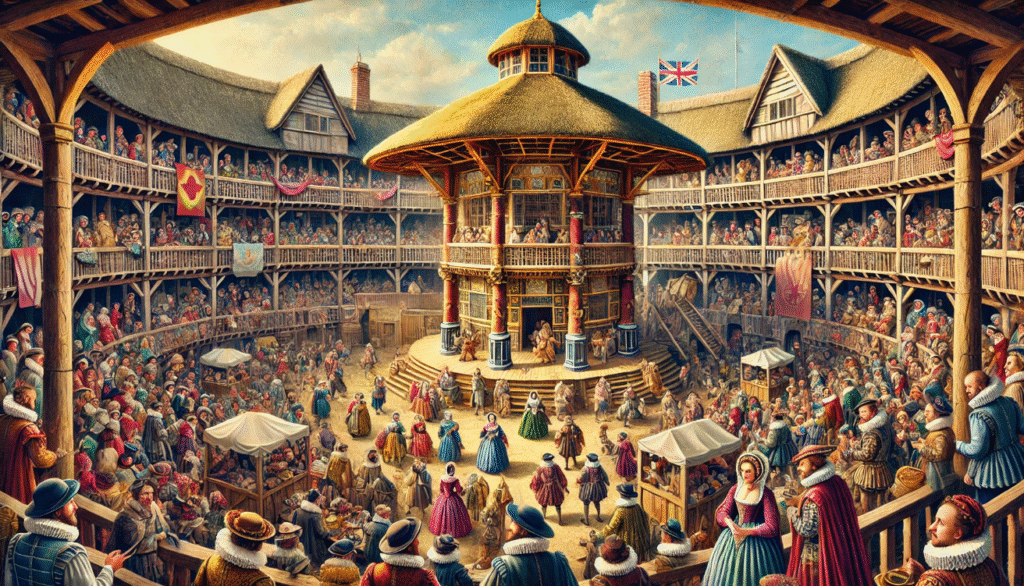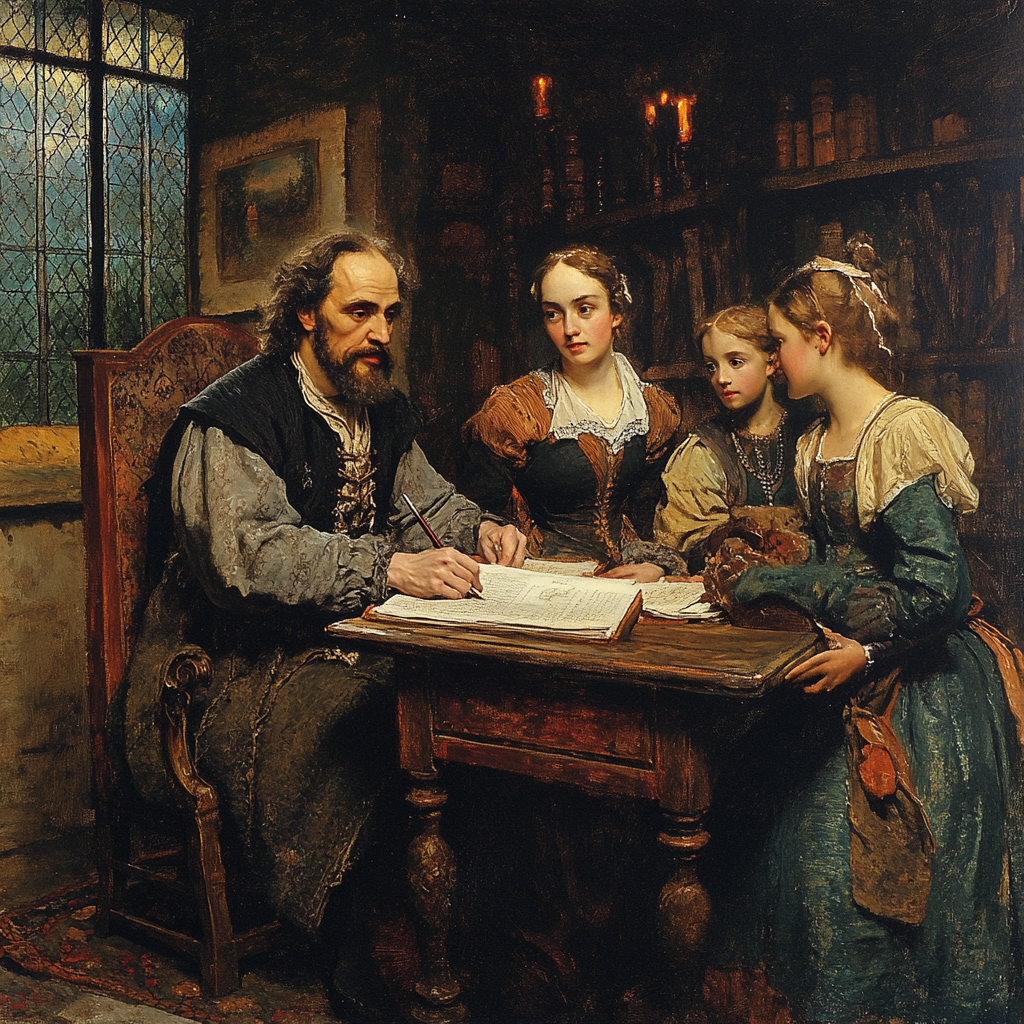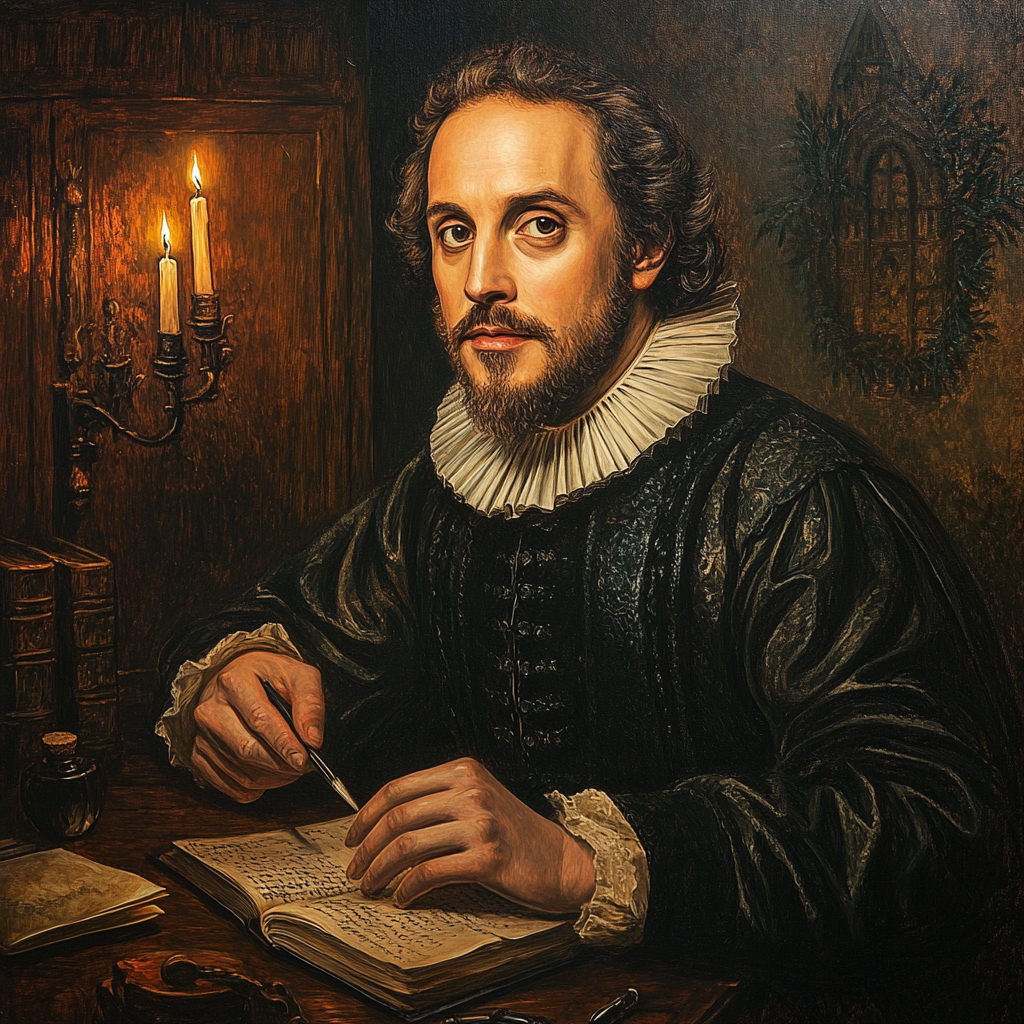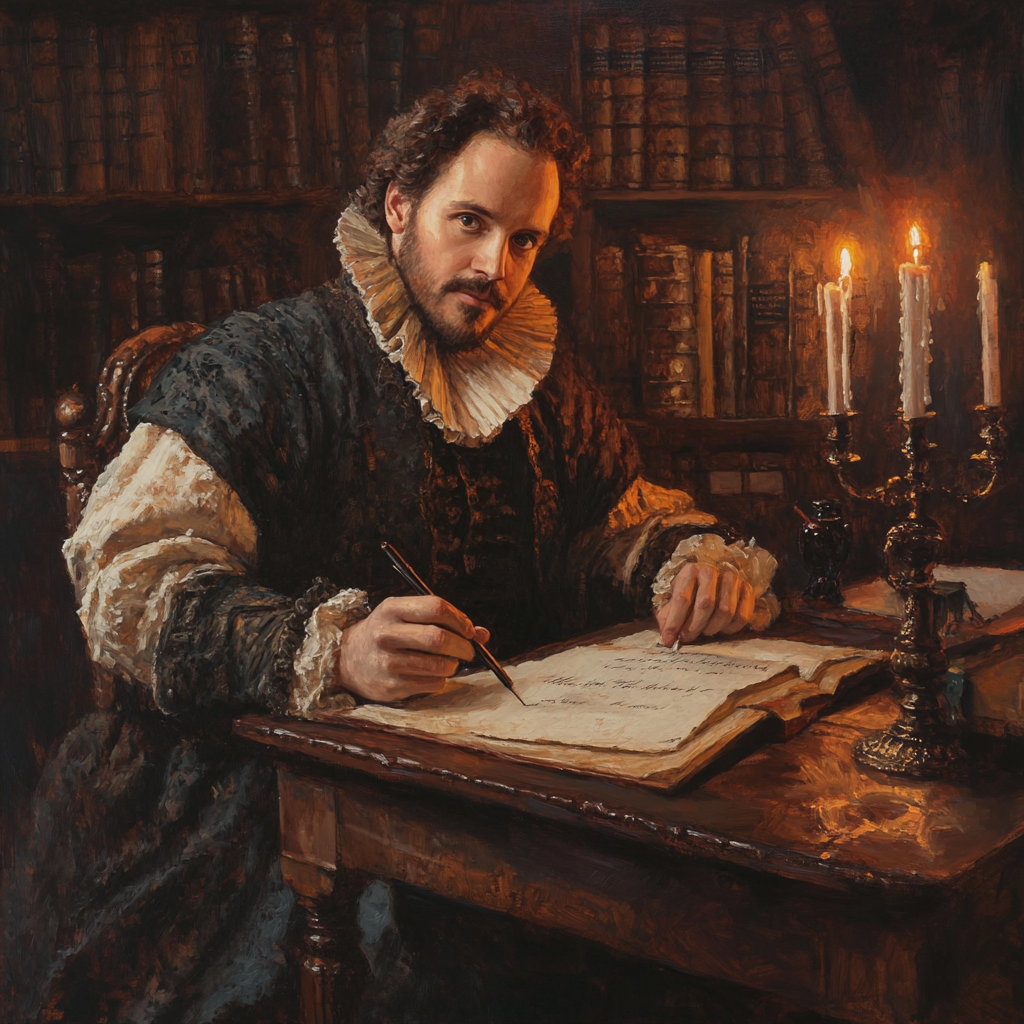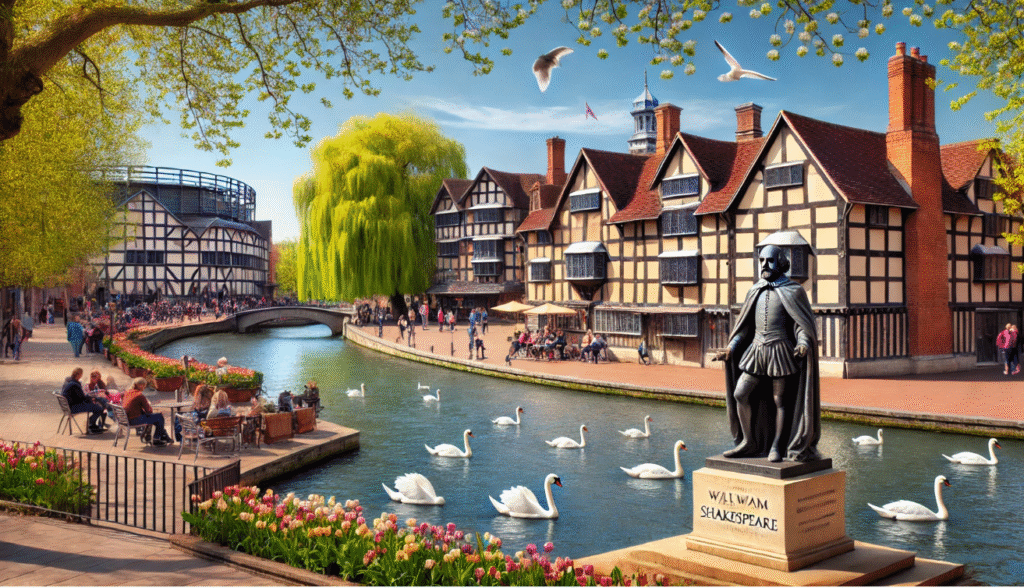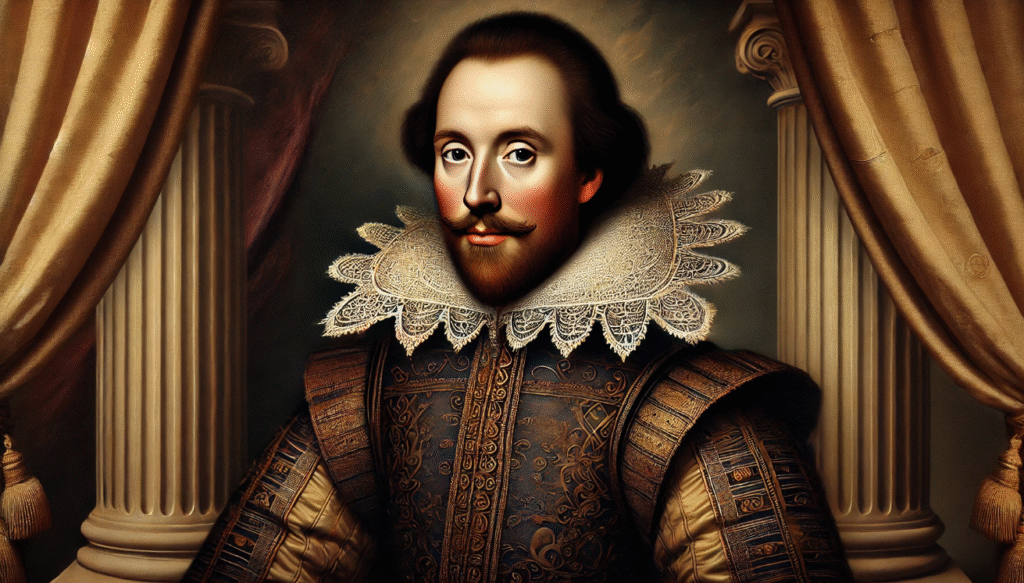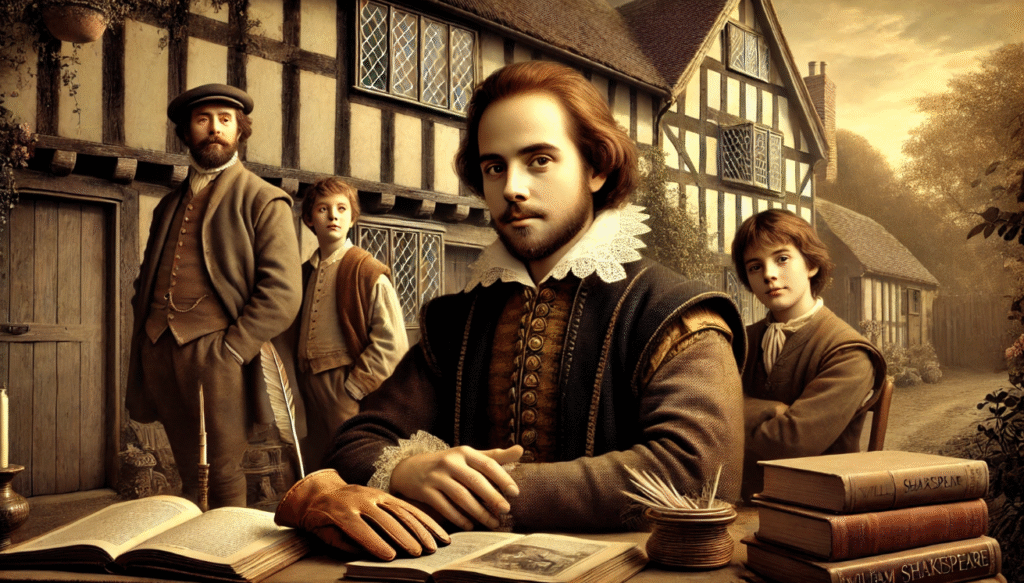 Shakespeare is widely regarded as one of the greatest playwrights and poets in the English language, and his works have had a profound impact on literature and theatre. His plays, such as “Hamlet,” “Macbeth,” and “Romeo and Juliet,” continue to be performed and studied around the world, showcasing his enduring significance. The Globe Theatre, a cultural icon of the Elizabethan era, was a prominent venue for Shakespeare’s plays. Shakespeare’s involvement in the Globe Theatre was a popular and influential theatre that attracted large audiences and showcased the talent of Shakespeare and his contemporaries.
Shakespeare is widely regarded as one of the greatest playwrights and poets in the English language, and his works have had a profound impact on literature and theatre. His plays, such as “Hamlet,” “Macbeth,” and “Romeo and Juliet,” continue to be performed and studied around the world, showcasing his enduring significance. The Globe Theatre, a cultural icon of the Elizabethan era, was a prominent venue for Shakespeare’s plays. Shakespeare’s involvement in the Globe Theatre was a popular and influential theatre that attracted large audiences and showcased the talent of Shakespeare and his contemporaries.
The Birth of the Globe Theatre
Background of theatre in Elizabethan England.
The rise of public playhouses during this time period was a significant development in the history of theatre. These public playhouses provided a space for the general public to gather and enjoy live performances, marking a shift from the more exclusive and private settings of earlier theatrical productions. Theatre was of great social and cultural importance during this time, as it served as a form of entertainment and a means of social commentary. It provided a platform for the exchange of ideas and the exploration of societal issues, making it an influential force in shaping public opinion and reflecting the values and beliefs of the community. Additionally, theatre also played a role in bringing people together, fostering a sense of community and shared experience among audience members.
Founding of the Globe Theatre.
The collaboration between Richard Burbage, the Chamberlain’s Men, and other stakeholders was crucial in the creation and funding of Shakespeare’s plays. Burbage was a prominent actor and shareholder in the company, while the Chamberlain’s Men was the theatrical company that Shakespeare was a part of. Other stakeholders, such as wealthy patrons and investors, also played a role in providing financial support for the productions. As for Shakespeare’s role, he was not only the playwright but also a shareholder in the company. His plays were a major draw for audiences, which helped bring in revenue for the company. Additionally, Shakespeare’s connections and relationships with influential figures in society also helped secure funding and support for the productions.
Shakespeare’s Role in the Globe Theatre

Shakespeare as a shareholder.
The financial investment in the Globe Theatre played a significant role in shaping the career of its investors. By investing in the Globe, individuals were able to secure a stake in the success and profits of the theatre company. This investment provided them with the opportunity to gain valuable experience in the business side of the entertainment industry, as well as the chance to network and build relationships with other professionals in the field. Additionally, the financial investment allowed individuals to contribute to the growth and development of the company, ultimately shaping their career trajectory and providing them with valuable skills and experiences that could be applied to future endeavors. The unique structure of partnerships within the theatre company allowed for collaboration and shared decision-making, creating a supportive and dynamic environment for investors to thrive in their careers.
Shakespeare as a playwright.

The Globe Theatre served as a prominent platform for William Shakespeare’s plays during his lifetime. Some of his key plays, such as Hamlet, Macbeth, and Othello, were performed at the Globe and contributed to the theater’s reputation as a popular venue for entertainment and drama in Elizabethan England. These plays continue to be celebrated and performed around the world today, reflecting the enduring impact of Shakespeare’s work.
Shakespeare as an actor.
Certainly! While many people are familiar with his work in film and television, it’s important to note that he also made significant contributions on stage. He has appeared in numerous theater productions, showcasing his talent and versatility as a performer. His performances on stage have received critical acclaim and have left a lasting impact on the theater community.
The Impact of the Globe Theatre on Shakespeare’s Works
How the theatre’s design influenced his plays.
An open-air stage typically refers to a performance space that is outdoors, allowing for a unique and natural setting for theatrical productions. Tiered seating provides an intimate and immersive experience for the audience, allowing for clear sightlines and a closer connection to the performers. The use of the stage’s features, such as natural scenery or architectural elements, can enhance the dramatic storytelling and create a more dynamic and memorable performance. This type of setting can offer a one-of-a-kind experience for both the audience and the performers, making it a popular choice for outdoor theater productions.
Feedback loop between the audience and the playwright.
The Globe’s audiences played a significant role in shaping Shakespeare’s writing. The open-air design of the theater meant that it attracted a diverse audience, including both the wealthy upper class and the lower-class citizens. This meant that Shakespeare had to cater to a wide range of tastes and preferences, leading to a more inclusive and universal appeal in his plays. Additionally, the immediate feedback and reactions from the audience would have influenced how Shakespeare crafted his characters, dialogue, and plot development. Overall, the Globe’s audiences had a profound impact on Shakespeare’s writing, helping to make his works resonate with people from all walks of life.
Challenges Faced by the Globe Theatre
 The competitive theatre landscape in Elizabethan London was a vibrant and bustling scene, with numerous companies vying for audiences and patronage. The Globe Theatre, owned by William Shakespeare’s company, was one of the most popular and successful venues at the time. The devastating fire of 1613 was caused by a cannon shot during a performance of Shakespeare’s play Henry VIII. The thatched roof of the Globe Theatre caught fire and the entire structure was quickly engulfed in flames. Shakespeare was directly involved in the rebuilding efforts of the Globe Theatre, taking an active role in the design and reconstruction of the new building. He was determined to restore the theatre to its former glory and ensure the continuation of his company’s performances.
The competitive theatre landscape in Elizabethan London was a vibrant and bustling scene, with numerous companies vying for audiences and patronage. The Globe Theatre, owned by William Shakespeare’s company, was one of the most popular and successful venues at the time. The devastating fire of 1613 was caused by a cannon shot during a performance of Shakespeare’s play Henry VIII. The thatched roof of the Globe Theatre caught fire and the entire structure was quickly engulfed in flames. Shakespeare was directly involved in the rebuilding efforts of the Globe Theatre, taking an active role in the design and reconstruction of the new building. He was determined to restore the theatre to its former glory and ensure the continuation of his company’s performances.
The Globe Theatre’s Legacy
Shakespeare’s contributions to the Globe’s lasting fame are immeasurable. His plays and poetry have solidified the theatre’s reputation as a cultural landmark, and his name has become synonymous with the venue itself. After Shakespeare’s death, the original Globe Theatre faced a decline and ultimately burned down in 1613. However, in modern times, the Globe Theatre has been reconstructed and stands as a homage to Shakespeare’s memory. This reconstruction is an important tribute to the Bard and provides contemporary audiences and scholars with a unique opportunity to experience his work in an authentic setting. The Globe’s significance for both audiences and scholars cannot be overstated, as it allows for a deeper understanding and appreciation of Shakespeare’s enduring legacy.

Shakespeare’s Involvement: A Catalyst for Theatre Evolution
His involvement in the Globe Theatre transformed the theatre industry by combining his creative vision with innovative business strategies. As a creative innovator, he pushed the boundaries of theatrical productions, introducing new techniques, themes, and styles that captivated audiences. Simultaneously, he approached the business side of the industry with fresh ideas, implementing marketing tactics, and financial management that made the Globe Theatre a commercial success. This dual role as a creative and business innovator set a new standard for the theatre industry and inspired future generations of artists and entrepreneurs.
The influence of Shakespeare’s Globe on future playwrights and theatre design has been significant. The Globe’s unique architecture, with its open-air design and thrust stage, has inspired modern theatre designers to create more immersive and interactive experiences for audiences. Additionally, Shakespeare’s innovative use of language and storytelling techniques continues to inspire playwrights to push the boundaries of theatrical expression. The Globe’s commitment to authentic and accessible performances has also had a lasting impact on how theatre is produced and experienced today. Overall, the Globe’s legacy continues to shape the future of theatre in profound ways.
Shakespeare played a pivotal role in the Globe Theatre as a playwright and shareholder. His works, such as Hamlet and Macbeth, were performed at the Globe and contributed to its success during the Elizabethan era. Shakespeare’s influence on the Globe Theatre continues to resonate in modern theatre through the enduring popularity of his plays and the ongoing study and adaptation of his work. His contributions to the Globe Theatre have left a lasting impact on the world of theatre and continue to inspire artists and audiences alike. The enduring bond between Shakespeare and the Globe Theatre serves as a constant reminder of the timeless and universal appeal of his work.

